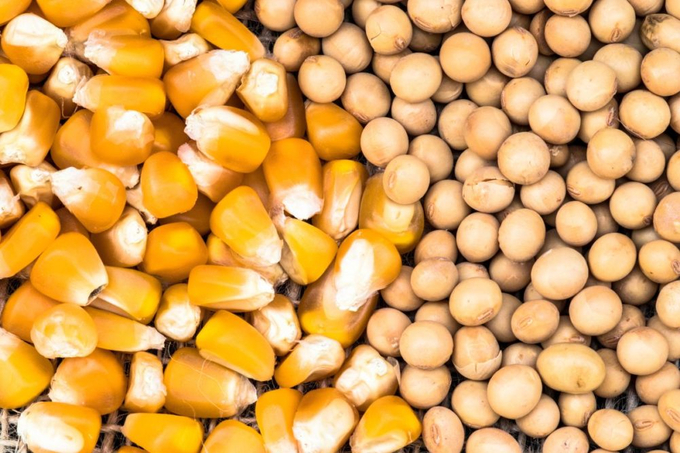November 27, 2025 | 15:33 GMT +7
November 27, 2025 | 15:33 GMT +7
Hotline: 0913.378.918
November 27, 2025 | 15:33 GMT +7
Hotline: 0913.378.918

Corn and soybeans account for about one-fourth of total US agricultural export value.
US corn and soybean exports to China could drop dramatically if a 60% tariff on Chinese goods being considered by US President-elect Donald Trump is implemented, according to a study released by the National Corn Growers Association (NCGA) and American Soybean Association (ASA).
The associations asked the World Agricultural Economic and Environmental Services to evaluate the impact a trade war would have on soybeans and corn, noting tariffs implemented during Trump’s first tenure as president from 2016-2020 led to retaliatory tariffs on numerous US products, including many agricultural and food products. The measure led to a significant reduction in agricultural exports to those nations.
If China cancels its current waiver (from the 2020 Phase I agreement) and reverts to tariffs already on the books, US soybean exports to China would, according to the study, fall 14 million to 16 million tonnes annually, an average decline of nearly 52% from baseline levels expected for those years. US corn exports to China would fall about 2.2 million tonnes annually, an average decline of 84% from the baseline expectation.
The study also found that even if US exports are shifted to other markets, the 60% tariff would contribute to a 13-cents-per-bushel drop in the price of corn. In the scenario, US corn farmers would lose $1.4 billion in annual production value, while farmers in South America would benefit with expanded markets for their corn, higher prices, and increased value of production, the study concluded.
“This burden of a tariff on US corn and other agriculture products is not limited to US farmers who lose market share and production value,” the NCGA said in its fourth quarter Economic Update. “The impact ripples across the US, particularly in rural economies where farmers live, purchase inputs, utilize farm and personal services, and purchase household goods.”
China and the United States signed a Phase I Agreement in January 2020 which helped end the trade war that started in 2018. Part of the agreement stipulated China would purchase $80 billion of US agricultural goods in 2020 and 2021, resulting in dramatic increases in Chinese purchases during that time.
Corn and soybeans account for about one-fourth of total US agricultural export value.
“The US agriculture sector is going through a significant economic downturn,” said Scott Gerlt, chief economist at the ASA. “This work shows that a trade war would easily compound the adverse conditions that are placing financial stress on farmers. Even when a trade war officially ends, the loss of market share can be permanent.”
(WG)

(VAN) China’s cooking oil is suddenly flooding into India. It all comes down to a soybean surplus that Beijing doesn’t quite know what to do with.

(VAN) An Giang promotes supply-demand connections, standardizes quality and builds value chains, creating a foundation for sustainable bird’s nest development and aiming to expand exports.
/2025/11/24/5339-4-nongnghiep-075331.jpg)
(VAN) Recently, the conference on 'Sustainable Fisheries Linkage Chain - Tilapia for Export' took place in Tien Hai commune, Hung Yen province.
/2025/11/21/4309-2-153400_128.jpg)
(VAN) Green and low-emission rice is paving the way for Vietnamese rice to enter high-end markets, marking the beginning of a transformation journey toward greening and elevating the national rice brand.

(VAN) ‘Right to Win’ outlines a national action plan that shapes a new vision for Viet Nam’s agriculture in an era of renewal and global integration.

(VAN) Lam Dong’s farmed sturgeon output this year is expected to reach 2,300 tons, worth VND 450 billion, affirming the brand’s position on the market.

(VAN) A surge in Ukrainian egg exports, largely driven by soaring sales to the UK over the last few years, has notably pushed up egg prices on the domestic market.